It's no surprise that, over the past decade or so, we've seen a rise in horror films focusing on social media. Society's relationship with technology has always contained a rich vein of thematic possibilities. Genre storytellers have been tapping into it for years, examining the new anxieties that always seem to come hand-in-hand with each seemingly miraculous advancement. So when platforms like Facebook, Twitter, and Instagram became a part of everyday life for so much of the world, horror did what it always does when a new piece of tech changes our lives: it dove into its dark side.
The end result has been a slew of pictures that vary in quality and intention. Some use social media as a gimmick to tell familiar but entertaining stories through a topical lens. Others attempt to analyze the societal and ethical problems the technology has left in the wake of its boom in popularity. There's really nothing wrong with either approach (to me, at least) as long as they're entertaining, and there have been some worthwhile entries in both camps. What follows are a few of my favorites, including two new to Shudder (also available with AMC+) this month as part of their “The Home for Halloween” lineup.
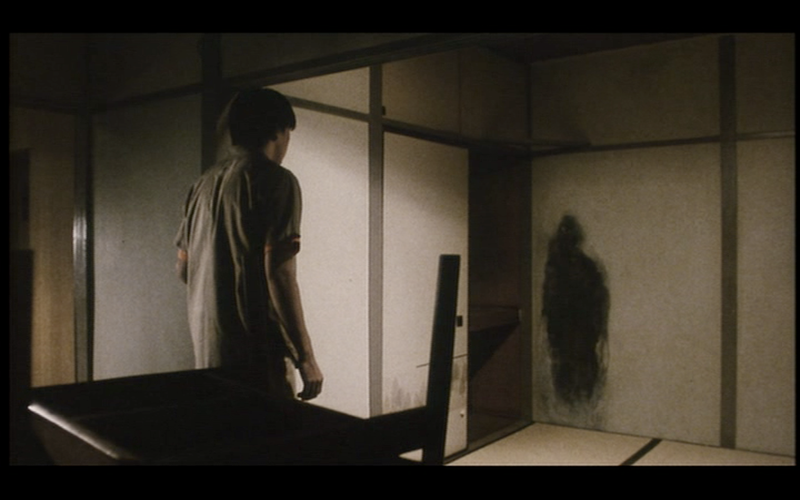
Pulse (2001)
Written and directed by Kiyoshi Kurosawa (deemed by some to be Japan's answer to David Cronenberg), Pulse follows a group of college students who begin to see ghostly figures throughout Tokyo after one of their peers commits suicide. Turns out the afterlife has run out of real estate, and the newly deceased are now entering our world through the internet (that might sound silly now but trust me when I say it was pretty darn spooky back when the "world wide web" was still a foreign land to most). As more and more spirits begin to bleed into our realm, the living are infected by their, well, deadness, and apocalyptic levels of chaos ensue.
While Pulse doesn't deal with social media specifically, many of the themes it touches on are startlingly similar to the issues we see today that are connected to it, making the movie feel like a sort of spiritual predecessor to the ones that would come afterward. We see lonely individuals seeking a way out of the isolation that plagues their lives. The internet (meant to be a tool to unite people) leads them to a new form of desolation that kills their spirit and ultimately results in the collapse of civilization. Sure sounds like a typical day on the Bird App to me!
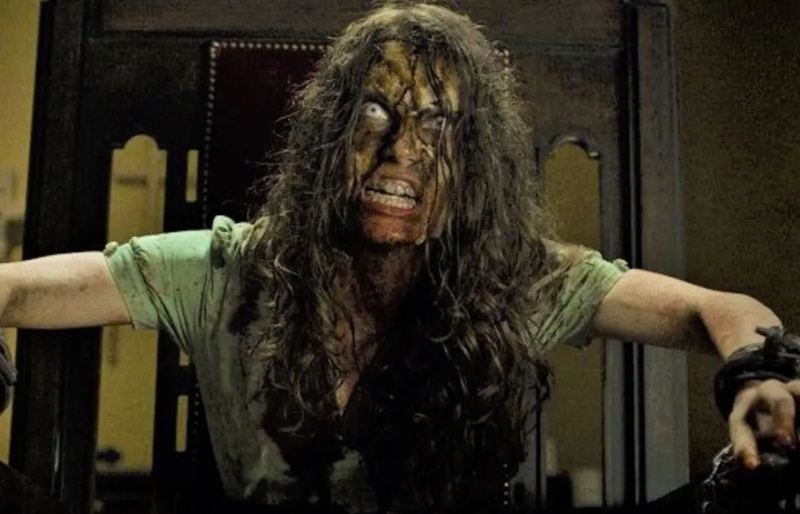
The Cleansing Hour (2019)
You must embrace the hustle to make a living as a social media personality. Growing your audience is your number one goal, and for some, this can become an obsession that leads to compromises of the seedier variety. In The Cleansing Hour, we meet Father Max, a former Catholic priest turned wannabe influencer who hosts a web series where he live streams exorcisms. Unbeknownst to his viewers, however, the individuals he features on his show are about as possessed as a bowl full of grapefruits. Hellbent on reaching as many people as possible in an effort to raise his own profile, Max increases the elaborateness of his manipulations until one fateful night when he comes face-to-face with an actual demonic entity. Now, in front of millions of people watching at home, he must confront his past, confess his sins, and attempt to stop a force of nature he never truly believed was real.
The Cleansing Hour falls somewhere between the two social media horror categories mentioned earlier. It uses the technology of live streams and the idea of internet fame to take the standard exorcism story into a territory it's never been before, but doesn't necessarily offer anything beyond surface-level commentary about those things. Which is fine, because its attempt at modernizing the subgenre is more than enough to make the film an entertaining watch. It contains many of the same tropes you'd normally see, but the absurdity of switching the ceremony's setting from some suburban bedroom to the set of what's essentially a reality television show gives it a sense of camp that works surprisingly well.
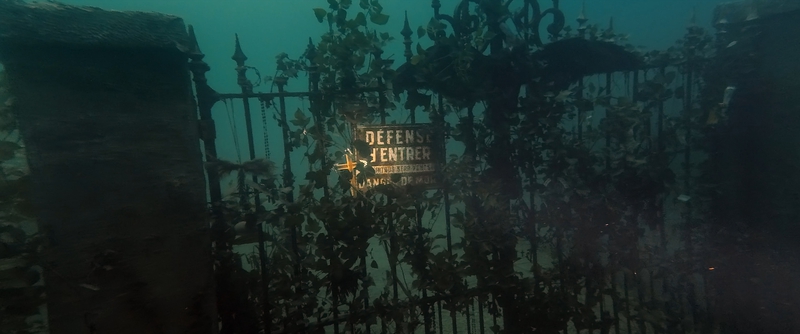
The Deep House (2021)
Internet fame is a fickle thing. So often, it seems to hinge on showing people sights they've never seen before, which can lead to some very dangerous attempts at originality. In The Deep House, we watch just this situation occur as a couple of YouTubers who specialize in making spooky urban exploration videos dive to the bottom of a lake in France in search of a decades-old villa purportedly somehow perfectly preserved. What could go wrong, right? Quite a lot, in fact, as the mansion turns out to be (surprise) very haunted. With their oxygen tanks emptying steadily, escape becomes their top priority. Only problem is the house doesn't want them to leave. Ever.
Though it's weighed down by subpar acting and unrealistic dialogue, The Deep House is impossible to take your eyes off of, thanks to the fact that they shot the entirety of its underwater scenes practically. This lends it an undeniable sense of claustrophobia that grips you from the moment they step foot (flipper?) in the movie's ghostly setting. But beyond those charms, The Deep House also succeeds in depicting the absurdity of the lengths some will go for online notoriety. Its protagonists' actions might sound far-fetched, but considering how many YouTubers have put themselves in the hospital after eating genetically altered hot peppers or inhaling condoms through their noses, maybe diving to the bottom of a lake to explore a spooky old house is sadly all too accurate.
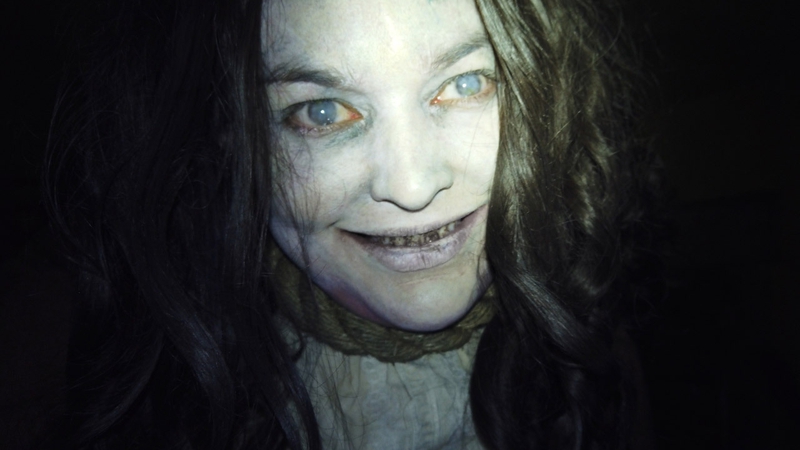
Deadstream (2022)
Horror comedies live and die by the balance they find between the two genres they marry. Too many gags, and it dulls the scariness of the audience's overall experience, but an overabundance of frights make the jokes feel out of place. While it doesn't achieve that sense of equilibrium perfectly, Deadstream is still a hell of an entertaining entry into that subgenre of fright flick. It follows a YouTuber named Shawn Ruddy who, after a particularly steep fall from grace thanks to a controversy he was responsible for, attempts to regain some of his past fame by live streaming his overnight stay in a haunted house. See, his channel's shtick is that he films himself experiencing the things that scare the crap out of him (in which there are many), and nothing puts the fear of god in Shawn more than ghosts. The weaselly influencer locks himself in, not seriously expecting much in the way of the paranormal, but soon realizes this is a house he should be afraid of.
Written and directed by the husband-and-wife team of Vanessa and Joseph Winter (the latter of which plays the film's lead), Deadstream succeeds in many ways. First off, Winter's performance as Shawn is wonderful; the character is such an asshat in so many ways, and it's a joy to watch him receive his comeuppance from the ghostly denizens he encounters. He's the worst aspects of influencer culture rolled into one, mixed with a heaping spoonful of tone-deaf-white-dude for good measure. The setup of the movie's found-footage format is also kind of ingenious, eliminating many of the logical pitfalls the subgenre can suffer from at times. It makes for a funhouse ride of a picture that will make you giggle and scream in equal measure.
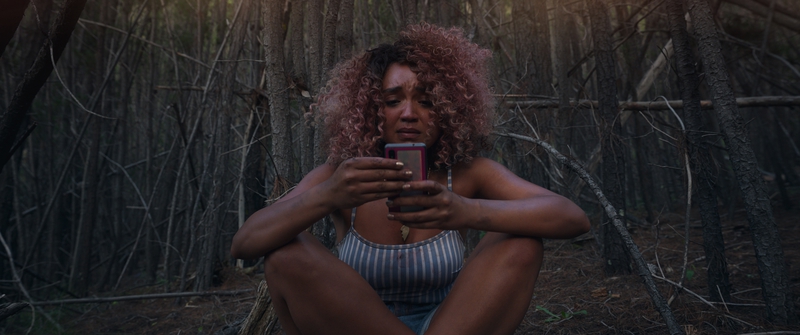
Sissy (2022)
Sissy, a sort of neo-slasher/satire from Australian filmmakers Hannah Barlow (who also co-stars in the film) and Kana Senes, examines many facets of influencer culture and internet life in general, but the way it looks at the idea of online identity and its relationship to our real selves is where it shines brightest. The movie follows a young woman named Cecilia (Aisha Dee), who has found great success making videos that help people address various mental health issues they might be struggling with. She lives a quiet life creating content for her channel and keeping mostly to herself, until one day when she's reunited with her former childhood BFF, Emma (Barlow). Turns out she's about to get married and invites Cecilia to her bachelorette party, which is taking place at a remote country home owned by (unknown to her) the bully that split the two friends apart back in the day. What follows is a bloodbath of a weekend where past resentments resurface, and dark secrets are revealed.
There's a certain amount of deception that goes into being an internet personality, and Sissy skewers this phenomenon in hilariously vicious fashion. Its writing is bitingly sharp, but it also never loses a sense of empathy, which produces a few moments that are surprisingly touching and relatable. Aisha Dee's performance as the title character is wonderfully nuanced. For much of the film, you can't quite place your finger on who Cecilia really is, and you're often left to wonder whether she even knows the answer to that question herself. And for more gore-inclined viewers, Sissy's kills are terrifically gruesome and unflinching. There's one in particular (you'll know it when you see it) that will most likely hit some "best of" lists at the end of the year. I won't be surprised if the film itself lands on them as well.






